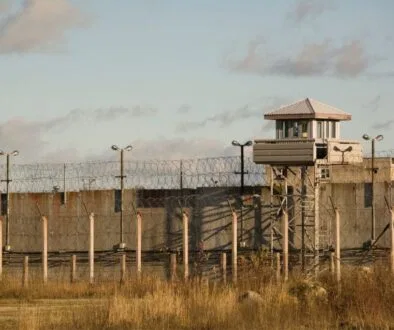Sheriff vs. Police: Know The Differences

Published Nov 2, 2021
Deputy sheriffs and police officers are frequently comparable law enforcement professions with equal skill sets and educational qualifications. However, there are several critical distinctions between these two career routes.
Understanding the distinctions between sheriff vs. police will help you gain a better understanding of these law enforcement roles and identify which career path may be best for you. This article defines deputy sheriff and police officer roles and discusses their significant distinctions involving education, training, job tasks, jurisdiction, compensation, and work environment information.
Understanding What a Deputy Sheriff Is
A deputy sheriff is a law enforcement officer responsible for the overall administration of the county in which they work. Deputy sheriffs are responsible for upholding and enforcing the law within their county, frequently collaborating with local or federal officials, depending on the nature of a given case or investigation. These professionals often begin their careers as police officers in a city or municipality. Typically, a county’s elected sheriff chooses deputies, selecting from a pool of highly trained officers to form an effective team of professional deputies who help sheriffs in their tasks.
Understanding What a Police Officer Is
A police officer is a member of law enforcement who works in an urban area and is entirely responsible for patrolling the city or town in which they are assigned. Additionally, police officers uphold and enforce the law, assist with investigations, testify against convicted felons, and assist in traffic collisions. Police officers can work as patrol police, monitoring a particular city region to dissuade crime and apprehend offenders. Police officers are often hired by local police agencies, rather than being chosen by senior officers or through an election, as sheriffs are.

ADVERTISEMENT
Deputy Sheriff vs. Police Officer
While the professional paths of a deputy sheriff and a police officer are quite similar, they differ significantly in terms of training, jurisdiction, and compensation. The following are some significant distinctions between a deputy sheriff and a police officer:
Education
Deputy sheriffs and police officers also can earn an undergraduate degree in law enforcement to augment their understanding of the law, criminal investigations, and police policies. Undergraduate degrees typically last between two and four years. A two-year associate degree teaches students the fundamentals of law enforcement, whereas a four-year bachelor’s degree teaches more advanced concepts and tactics. Students who get a bachelor’s degree in law enforcement can expect to earn a higher wage due to their improved expertise.
Deputy sheriffs and police officers usually are required to have at least an associate degree. However, this is not always the case, as requirements differ by company. Additionally, education requirements vary by state, with some requiring officers to get an undergraduate degree before beginning academy training. Therefore, regardless of the job route, you select or the state in which you intend to work, an undergraduate degree in law enforcement can assist you in achieving your goals.
Training
Deputy sheriffs and police officers both receive specialized training at a police academy or other similar university-based programs. Training programs might take up to six months to complete, depending on the curriculum you choose. In addition, officers often undergo training on firearms and police policy, which varies by city, state, and jurisdiction. For instance, city police personnel may undergo training in riot dispersal and crowd control due to the possibility of bigger crowd gatherings in an urban context. On the other hand, a sheriff’s deputy may not require this training because such meetings are uncommon in their jurisdiction.
While police officers and deputy sheriffs frequently have the same training possibilities, the standards for their training may differ by state. For instance, several states require deputy sheriffs to receive additional policy training. Therefore, if you are interested in either career route, it may be beneficial to conduct a study on the requirements for the state in which you wish to work.
Job Tasks
Deputy sheriffs and police officers perform comparable roles, with the following notable distinctions:
-
Patrolling areas
Deputy sheriffs and police officers both patrol their territories in an attempt to discourage crime and keep an eye on residents. Police officers, on the other hand, frequently patrol city streets, while deputy sheriffs generally patrol highways and county roads.
-
Investigating crimes
While deputy sheriffs and police officers both investigate crimes, the nature of the offenses and their jurisdictions might dictate their level of involvement. For instance, a police officer may investigate a burglary within their city but refer the case to homicide investigators if a murder occurred at the crime site, even though it happened within their jurisdiction.
-
Enforcing laws
While both deputy sheriffs and police officers enforce the law, they preserve mutual respect for their respective authorities. As a result, a collaboration between departments is common and frequently crucial when it comes to solving high-profile crimes.
-
Monitoring roadways
Deputy sheriffs often enforce traffic laws on highways and county roads, while police officers enforce traffic laws on city streets and highways within city borders.
Salary
The annual salary of a deputy sheriff and a police officer is another significant distinction. Police officers get annual pay of $53,475 on average, while deputy sheriffs earn an average annual pay of $41,120. Greater compensation for both occupations may be offered depending on the level of education received by a law enforcement officer and the state in which they serve. In addition, both professionals frequently have advancement chances. For instance, a deputy sheriff may be elected county sheriff.
Work environment
Police officers and deputy sheriffs work in similar circumstances. However, police officers usually remain within city lines. Due to city grid patterns, buildings, and high traffic zones, urban landscapes can be tough to patrol. Sheriff deputies often operate in more rural locations, which presents its own set of issues, such as patrolling vast swaths of terrain. Both deputy sheriffs and police officers work both in and out of the office.
Both occupations face comparable working hazards. Although a criminal investigation by its very nature can be risky, police officers and deputy sheriffs receive extensive training in threat identification and prevention. Both police may also interact with the public to maintain a safe environment and the ability to discover criminals quickly.
Reduce Your Jail Call Costs By Up To 90% Per Minute With GlobalTel
GlobalTel’s inmate calling service lowers jail call per minute rates by up to 90% for jail calls from US facilities. Sign up now and use the special jail call phone number we create for you to eliminate the long distance jail call fees. Try GlobalTel for only $45.99 for 90 days. Make US/domestic and international jail calls at the local rate and stay connected to your incarcerated loved ones for less. Learn more about how to sign up for calls from inmates here.

This Content Is Fact Checked
Our esteemed team of specialists has thoroughly validated the accuracy of this information. Discover further details about the rigorous editorial guidelines for our website here.
ADVERTISEMENT

About The Author
Krizzia Paolyn is an SEO Specialist with a bachelor’s degree in Psychology. It has always been her passion to share her voice, and at the same time, to encourage other people to speak up.




